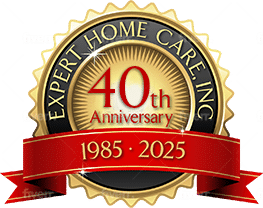NJ Senior Money Management
According to a recent MetLife Mature Market Institute study, losses from elder financial abuse are estimated at $2.6 billion annually.
New Jersey seniors can protect themselves and their assets by educating themselves, planning ahead, and putting in place specific guidelines for those they trust with their financial affairs.
According to the National Committee for the Prevention of Elder Abuse (NCPEA), financial abuse can take many forms: outright theft of money or property; forging signatures; or using deception, coercion or undue influence to get seniors to sign deeds, wills or powers of attorney. Other means of financial abuse include using deception to gain victims’ confidence and telemarketing scams such as those that prompt seniors to send money or provide a credit card account number.
Signs of elder financial abuse can include:
- Unpaid bills
- Eviction notices
- Large, unexplained withdrawals
- Frequent ATM withdrawals
- Seniors who find themselves with a new “best friend”
- Care that isn’t commensurate with the size of their estates
- Family members or caregivers who are overly interested in the amount of money seniors spend or that is spent on their behalf
Seniors may not suspect or may not want to suspect that they are being taken advantage of. Those who are abused don’t seem to be aware of the abuse. For instance, seniors may know their children have sold their home, but they may think the children intend to use the money to pay for the senior’s needs. The fact that family members are the most frequent perpetrators is the biggest stumbling block to resolving these crimes. Victims are reluctant to prosecute because they find the situation embarrassing, and it’s demeaning to admit that someone they trust, especially a son or daughter, is exploiting them.
Seniors can stop financial abuse by putting in writing what they want to have done with their property, money and belongings long before the need to invoke a power of attorney ever arises, or see an attorney to draw up specific directives rather than relying on a document from an office supply store or the Internet.
To get help, contact the U.S. Administration on Aging, which identifies Adult Protective Services in every state. Call 1-800-677-1116 or visit http://www.ncea.aoa.gov or the National Domestic Abuse Hotline at 1-800-799-7233.
Posted by: Frank Esposito, Vice President of Expert Home Care. New Jersey’s Expert Home Care provides professional and reliable home health care and companion care for NJ seniors, helping them with their daily living activities since 1984. Please call us toll free at 800-848-2336 when you have elder care related questions or need assistance for a loved one. Get a Free Home Care Assessment (a $375 value!) when you mention this post.
- NJ Home Health Care Client Bill of Rights - March 12, 2019
- Senior Home Care Preparation For New Jersey Families - December 17, 2018
- Elder Abuse More Common Than Thought - December 10, 2018

